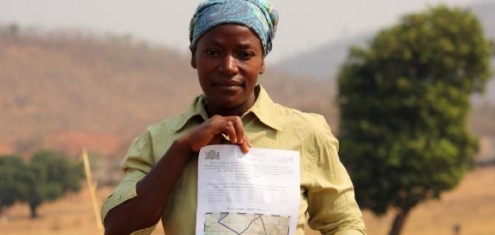Enabling Adaptive Management for Women’s Economic Empowerment and Equality

Photo Credit: Jeremy Green, USAID
In support of the United States Agency for International Development’s (USAID) Office of Gender Equality and Women’s Empowerment, Integra is conducting a portfolio performance evaluation of 45 activities under the White House-led Women’s Global Development and Prosperity Initiative (W-GDP). The initiative, established in February 2019, is the first whole-of-government effort to advance women’s economic empowerment globally, with a goal of reaching 500 million women in the developing world by 2025. A variety of private sector partners and ten government agencies are supporting the initiative including USAID and the Millennium Challenge Corporation (MCC), among others. Private sector partners include major companies like Mars, Inc., Microsoft, and VISA, which are working to support women in a variety of ways, such as more directly including women in PepsiCo’s potato supply chain in India, and developing policies and mechanisms that increase women’s safety in Levi Strauss apparel factories in Lesotho.
Gender inequalities are costly to economies on a social and monetary scale. It is estimated that if women were able to participate in the economy identically to men, they could add as much as $28 trillion to annual global GDP by 2025. However, women face many challenges to both entering and receiving fair treatment in the workforce, despite the immense value they add. Such barriers span across legal and regulatory frameworks, workforce policies and practices, and cultural norms, undermining women in both formal and informal economies. For example, unequal access to capital and credit can severely hinder female entrepreneurs’ ability to start and sustain businesses. Other regulations restrict women’s ability to sign legal documents and own or manage property, while workplace policies – or lack thereof – can put women’s health and safety at risk, disincentivizing or directly limiting their ability to generate income. To overcome these barriers, W-GDP focuses on three pillars: (1) women prospering in the workforce, (2) women succeeding as entrepreneurs, and (3) women enabled in the economy. Every W-GDP activity addresses some element or a combination of improving women’s workforce development, skills training and education, increasing access to capital, markets, networks, and mentorship, and removing restrictive legal, regulatory, and cultural barriers.
As a result of W-GDP, the U.S. White House reports significant impacts in countries such as Columbia, Cote d’Ivoire, and Morocco, where commitments to expand women’s access to credit, property rights, and land have been put in place. It also reports that W-GDP has reached 12 million women to date. The Integra-led evaluation will provide invaluable insights into how these activities are progressing, whom they benefit, and how partners, including USAID offices that support W-GDP, might adapt to further maximize results for women. The evaluation will also address the sustainability of these efforts and produce four case studies on specific in-country activities, to be selected by USAID.
Due to the global reach of W-GDP and the wide range of partners involved, Integra is taking a three-pronged approach to answer the evaluation questions, which broadly assess each activity’s relevance, effectiveness, and sustainability:
- Overcoming challenges presented by the COVID-19 pandemic, an electronic survey will be disseminated to W-GDP staff across all 45 activities, with tailored questions for different cohorts, for example, USAID staff, an implementing partners’ Chief of Party, and local partners;
- Building on insights gained from the survey, Integra will conduct remote key informant interviews (KIIs) with select W-GDP staff, partners, and beneficiaries;
- Diving deep into four activities, case studies will be developed using remote and in-person KIIs to be conducted by locally based teams, with oversight from Integra staff using a set of country-specific COVID-19 protocols.
Through the collection and analysis of this data, Integra will provide valuable insight and recommendations to USAID and partners for increasing women’s economic empowerment. A final evaluation will also be conducted in early 2023. Beyond this effort, Integra looks forward to incorporating insights gained from this evaluation and the W-GDP and this evaluation activities into the design and implementation of other activities client projects moving forward, to support women’s economic empowerment globally.




































